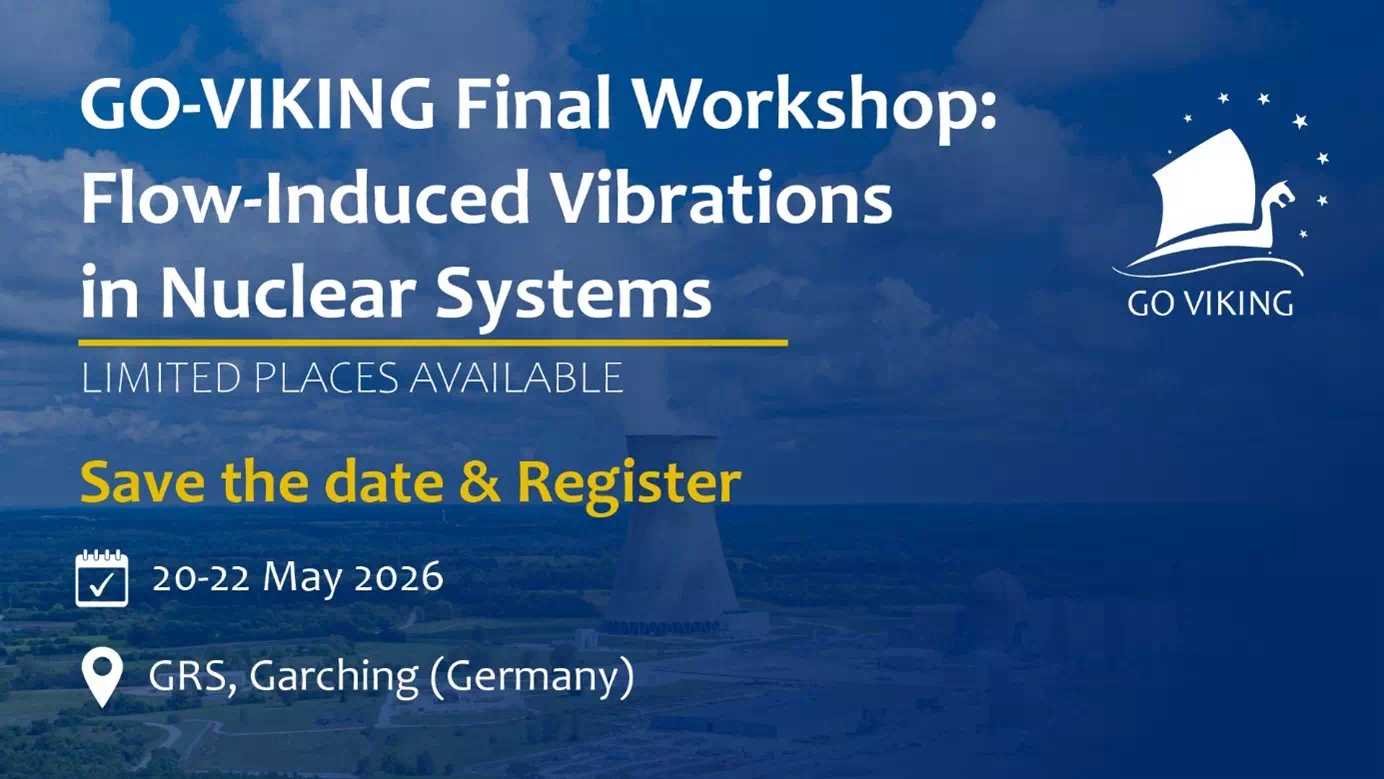The GO-VIKING project recently organised a successful Lecture Series on Fluid-Structure Interaction (FSI) and Flow-Induced Vibration (FIV) at the Von Karman Institute for Fluid Dynamics (VKI) in Belgium, aimed at deepening the understanding of these crucial factors in nuclear reactor safety and performance.
Over the course of four days, leading experts from around the world, many of whom are directly involved in GO-VIKING, explored key topics related to FSI and FIV. The event provided both theoretical insights and practical, hands-on learning experiences for attendees.
Key Highlights:
- Day 1: The series opened with an introduction to FSI and FIV, featuring Prof. Joris Degroote from the University of Ghent. Dr. Pascal Veber from Vattenfall and Dr. Daniele Vivaldi from IRSN presented on the importance of understanding FIV in nuclear reactor components. The day concluded with an interactive panel discussion on industry perspectives on FIV in nuclear applications, featuring Paulus Smeekes (TVO), Dr. Hidajet Hadzic (Framatome GmbH), Dr. Pascal Veber (Vattenfall), and Pierre Moussou (EDF). The panel was chaired by Dr. Lilla Kolozar (VKI).
- Day 2: The second day focused on analytical methods and measurement techniques for FSI/FIV. Dr. Angel Papukchiev (GRS) provided insights on analytical evaluation methods. Dr. Mostafa Nabawy (University of Manchester, UK) explored measurement techniques for FSI/FIV in single-phase flows, while Philippe Planquart (VKI, Belgium) discussed the best practices to investigate single-phase FIV in bundle geometries through laboratory experiments. The day concluded with a visit to the GOKSTAD experimental facility, a key research site for FIV studies.
- Day 3: The third day featured discussions on computational methods for FSI/FIV. Dr. Sofiane Benhamadouche (EDF, France) presented on computational methods for single-phase FSI/FIV, while Dr. Salim Elbouzidi (Canadian Nuclear Lab, Canada) shared best practices for investigating single-phase FIV in bundle geometries through CFD. Ir. Kevin Zwijsen (NRG, Netherlands) then explored the use of reduced-order models for FSI/FIV, focusing on improving the accuracy of simulations in real-world reactor scenarios. The day concluded with Dr. Matilde Fiore (VKI, Belgium) presenting on uncertainty quantification in FIV predictions.
- Day 4: The final day covered multi-phase flow and its impact on FIV. Dr. Edo Frederix (NRG) opened the session with numerical analysis of two-phase flows relevant to FIV, followed by Dr. William Benguigui (EDF), who presented on simulation strategies to analyse FIV in multiphase flows. Dr. Vincent Fichet (Framatome) then introduced experimental techniques to characterise FIV in multiphase flows, concluding the series with Prof. Marwan Hassan (University of Guelph), who shared the best practices for experimental characterisation of FIV in multiphase flows in bundle geometries.
Throughout the week, attendees had the opportunity to engage directly with leading researchers and industry experts, gaining valuable insights into the challenges and solutions for FIV in nuclear reactor applications.

The lecture series was a significant success in advancing the understanding of FSI and FIV, with discussions spanning from theoretical and analytical approaches to practical, real-world applications. The lecture notes will be published open access in the coming weeks for those interested in delving deeper into the topics covered.
For those looking to continue exploring FIV and its implications, be sure to register for the second yearly Open Lecture on Flow-Induced Vibration: The Experimental Approach, scheduled for 3 June 2025. Stay tuned for more details!





